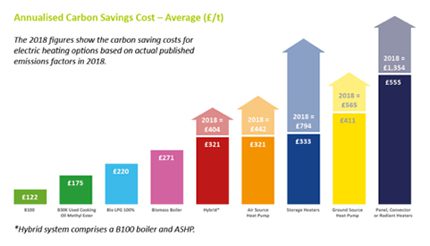- Encourage and support energy efficiency measures in the immediate term to improve the performance of buildings and their services. This will reduce energy demand and cost for households irrelevant of technology used. We recommend action is taken ahead of deployment of a sustainable low carbon liquid fuel to maximise carbon reduction benefits.
- Support supply chain preparations to accept a 30% FAME/70% kerosene blend fuel into existing installations by 2027 including an industry-led field trial. The field trial will build on work previously undertaken by OFTEC and the University of East Anglia, to better understand long term handling, storage and combustion of non-fossil fuel blends.
- Support supply chain preparations to accept a supply low carbon (0% fossil) liquid fuel by 2035 following a full evaluation of boiler and tank fleet and successful field trials of all possible future products which may come from UK or European sources.
- Be actively involved in transitional communication work with consumers utilising the relationships that our members already have with the consumers.
- Encourage all interested suppliers (UK based and in Europe) to evaluate all new low carbon/greenhouse gas (GHG) fuels and technologies that are already being developed and coming to market including Gas to Liquid (GTL), Hydrotreated Vegetable Oil (HVO), e-fuels and other liquid fuels made from waste materials. Products such as these will complement and/or replace the Fatty Acid Methyl Ester (FAME) solution.
“We believe this is a practical, affordable and effective solution which addresses all of BEIS’s key requirements: to keep energy bills low; cost effectively reduce carbon emissions; ensure a secure, resilient energy supply; bring economic benefits and avoid unreasonable upfront costs for consumers.”
All three trade associations say:
“Our industry is committed to creating a supply chain capable of distributing a 30% biofuel 70% kerosene blend from 2027 and 100% low carbon liquid fuel by 2035. We are therefore calling on the Government to work together with industry to support and benefit rural communities across the country and set out a clear roadmap to the decarbonisation of heat, with regulation that will provide confidence to the market by providing a clear trajectory.”

